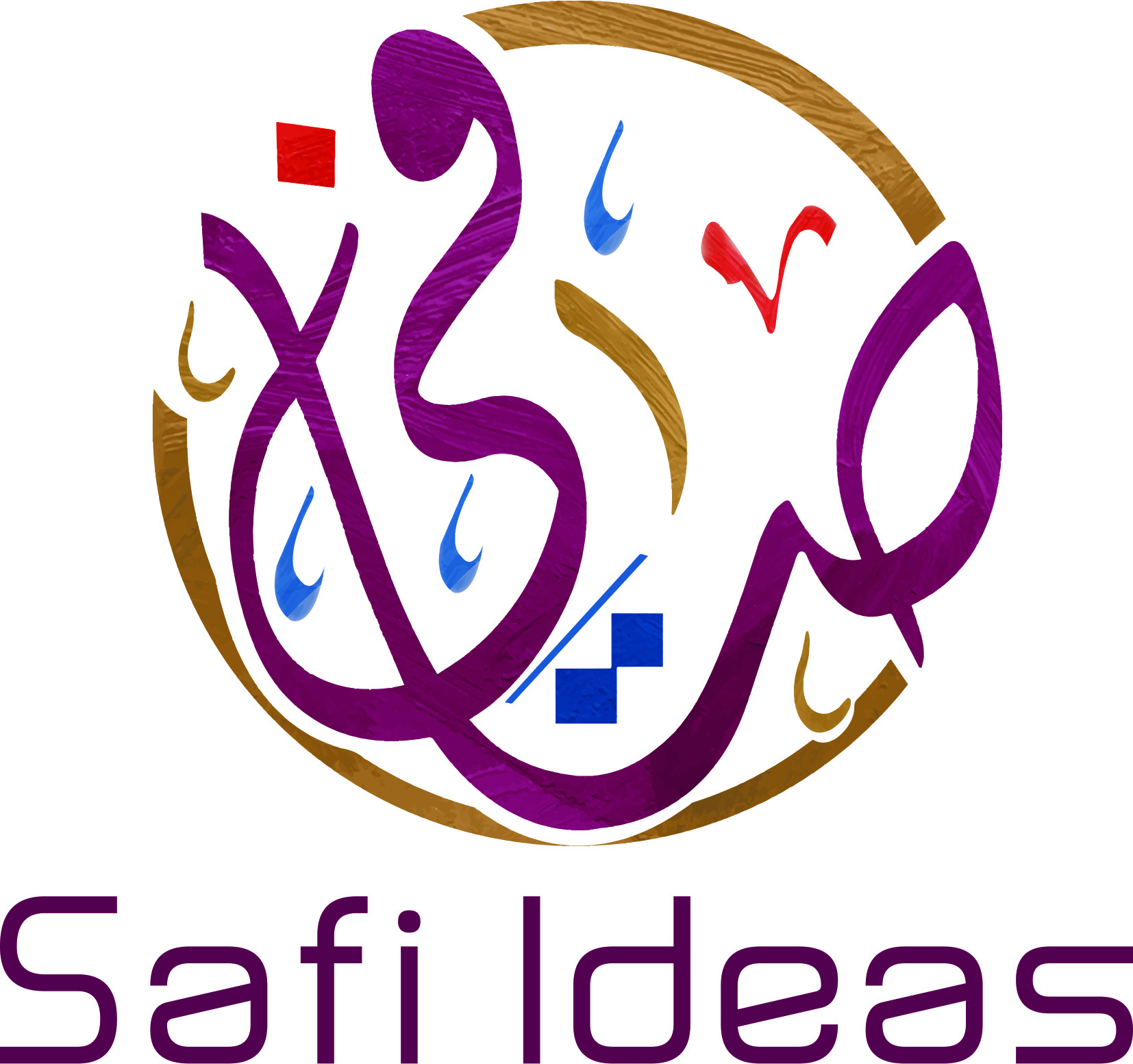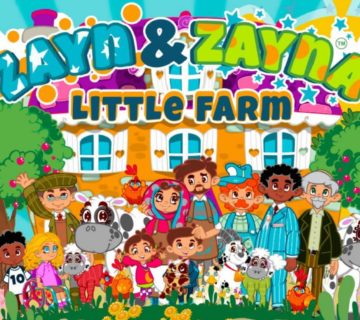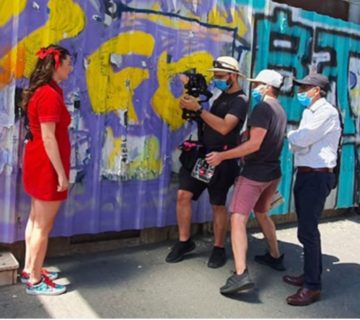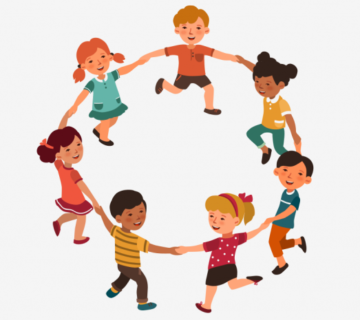5 Tools & techniques to make diversity a fun topic in your classroom -By Wa’qaar Mirza
There’s no doubt that diversity needs to be taught in our classrooms in a bid to tackle racism and create a more inclusive generation. This year we have seen movements & protests highlighting how the racism that is ingrained in our society and history is still present today.
In 2019 there was an 11% rise in hate crimes aimed towards minorities in the UK compared to 2018 (According to The Home Office.) Educating children that diversity is a positive aspect of life, could be part of the solution to help reduce issues like this in the future, as well as increasing creativity, encouraging open mindedness and providing a counter-argument to racism, laying down the foundations for an inclusive society that embraces differences. This education really needs to start early. Studies show that babies recognise differences in skin colour and hair textures and children as young as four years old begin to learn stereotypes about themselves and others. It all reinforces the importance to give children an alternative view on harmful stereotyping as soon as possible.
In an ideal world, this education would start at home before children start school, but this year has taught us that parents are often not equipped or supported enough to take on the difficult task of educating at home. In fact, parents were finding homeschooling so challenging during the first CoronaVirus lockdown that a national UK helpline “StarLine”, which allows struggling parents to speak with teachers and education specialists, was set up. If parents require this support with traditional school subjects where there are already extensive resources available, can we expect them to know how to teach young children about diversity and inclusion? It is also important to remember that parents may have little knowledge on the subject themselves. There is a lack of good diverse educational content available for children and guidance for parents on how to teach the subject is limited. This issue inspired me to create Zayn and Zayna’s Little Farm, a truly diverse animation that encourages inclusive behaviour and supplies parents and teachers with worksheets and tips to go along with each episode.
The opportunity to educate children on diversity and inclusion consequently falls at the feet of our indispensable teachers, who work hard to inspire, educate and bring positivity into their classrooms. Here are some additional tools and techniques to help when teaching diversity to your students.
Explore the world in new ways
Travelling is a great way to learn about other cultures, cuisines, religions and ways of life. You can recreate this in your classroom! Use a globe or atlas to travel all over the world, picking new countries and continents to explore in your lessons. You can encourage your class to be more accepting of those different from themselves and demonstrate diversity as a normal fact of life by learning about different cultures; you can taste dishes from around the world or teach your class how to use chopsticks for example.
Use content rich in diversity
Mainstream TV often lacks truly diverse content, often showcasing diversity in tokenistic forms, using different coloured animals, rather than authentic complex human characters of varying race, religion, sexual orientation and other backgrounds. In fact, a report from Hopster showed that BAME characters are often ‘pushed’ into the background of children’s TV shows, with only 6 out of the 50 shows studied having a BAME lead character.
However, educational diverse children’s TV shows are emerging, take Zayn and Zayna’s Little Farm for example. This children’s animation was created to be a classroom resource for teaching children about diversity and inclusion through the fun adventures of Muslim brother and sister, Zayn and Zayna on their family’s British farm. The show tackles subjects such as respect, kindness, sustainability and diversity in digestible 15-minute episodes available on YouTube.
Host celebrations
Celebrate different occasions from different religions, cultures and countries. Choosing to celebrate a whole host of events like Chinese new year, Diwali, Eid or Ramadan ensures your classroom is inclusive and gives you the opportunity to teach children about different ways of celebrating. You can also use this as an opportunity to share stories from around the world, for example Aboriginal Dreamtime stories. Or, listen to music from different places, learning about instruments that students may not have heard or seen before.
Choose varied resources
When choosing your lesson resources, ensure you select up to date assets that don’t include stereotypes, instead choose role models, photos or videos that demonstrate diversity in ability, race, religion. This creates an inclusive environment and presents diversity as the norm.
Quiz your class
Creating fun quizzes with weekly themes is a great way to connect with your students and an opportunity to gauge how much they already know about different religions, cultures, disabilities and countries. Creating quiz teams gives children the chance to develop their teamwork skills whilst sparking their interest in new topics and enhancing their research skills if you allow different teams to run the quiz in the following weeks.
With most mainstream TV and books still failing to provide truly diverse non tokenistic representations to children and parents often feeling lost, without support to educate their children on diversity alone. I believe these teaching tools combined with teachers’ incredible creativity, resources and knowledge will help students learn to be inclusive and consequently make our future society a more welcoming and accepting place, where just like your classrooms everyone can feel valued, listened to and respected.
-ends-
About Wa’qaar A Mirza
Wa’qaar A Mirza is co-founder and global CEO of Safi Ideas. An accomplished British entrepreneur with over 30 years experience in direct response marketing strategy, Mirza has held senior executive positions at leading global media, financial and consumer brands including PWC, British Telecom and HSBC.
An accomplished author, speaker, producer and director, much of Mirza’s work has been in cultural and religious production with a focus on content working towards greater equality and visibility for marginalised groups. Mirza has produced programmes for National Geographic and the Discovery Channel.
In 2020 Safi Productions launched Zayn and Zayna’s Little Farm, an inclusive pre-school animated show dedicated to seeding inclusive ideas and teachable moments in kindness, mindfulness, family, and community to all children.
read more: https://opinionnigeria.com/5-tools-techniques-to-make-diversity-a-fun-topic-in-your-classroom-by-waqaar-mirza/




